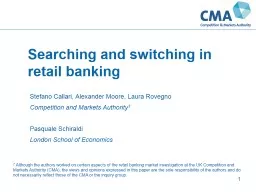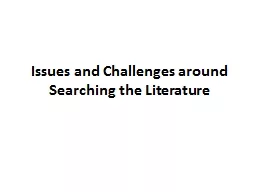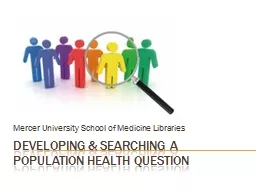PPT-Academic Reading Searching for Resources and Creating a Literature Cards
Author : karlyn-bohler | Published Date : 2019-11-07
Academic Reading Searching for Resources and Creating a Literature Cards Important Quotes Whitehead 2018 70 of academic writing is One cannot write academically
Presentation Embed Code
Download Presentation
Download Presentation The PPT/PDF document "Academic Reading Searching for Resources..." is the property of its rightful owner. Permission is granted to download and print the materials on this website for personal, non-commercial use only, and to display it on your personal computer provided you do not modify the materials and that you retain all copyright notices contained in the materials. By downloading content from our website, you accept the terms of this agreement.
Academic Reading Searching for Resources and Creating a Literature Cards: Transcript
Download Rules Of Document
"Academic Reading Searching for Resources and Creating a Literature Cards"The content belongs to its owner. You may download and print it for personal use, without modification, and keep all copyright notices. By downloading, you agree to these terms.
Related Documents














